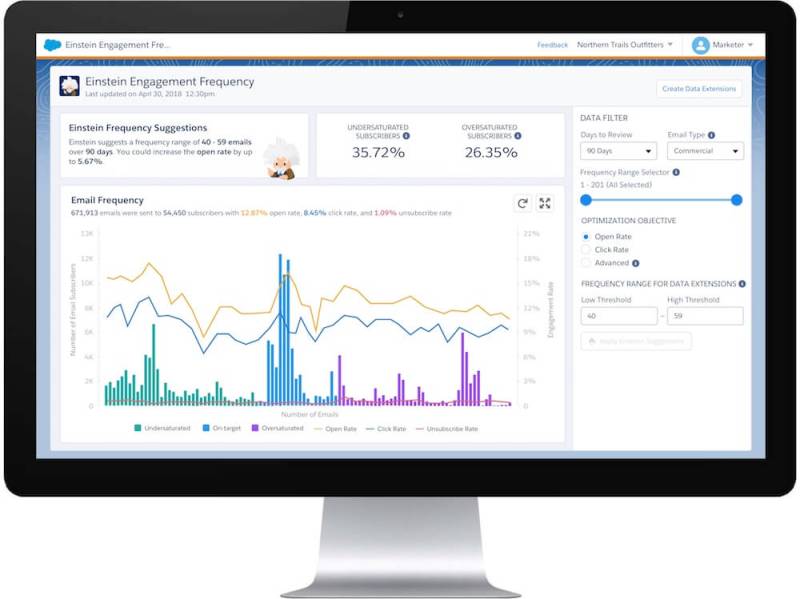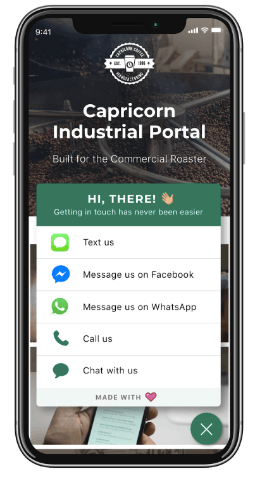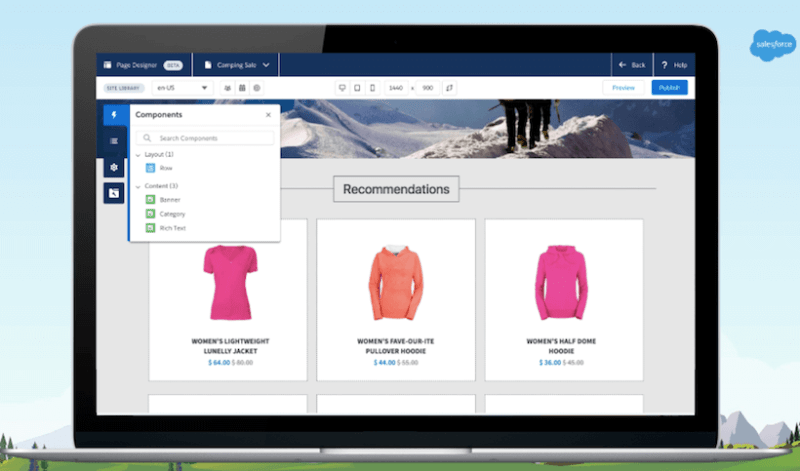Watch all the Transform 2020 sessions on-demand here.
AI in sales segments isn’t a mere novelty — it’s fast becoming the norm. Roughly 87% of enterprise AI adopters say they’re using (or at least contemplating using) AI and machine learning for sales forecasts and to improve their email marketing. And according to real-time data warehouse company MemSQL, 61% of marketers believe AI is the most important element of their overall data strategy.
That’s likely why Salesforce continues to lean heavily on Einstein, its proprietary predictive analytics and AI platform, which now powers 6.5 billion predictions daily. (That’s up from 4 billion predictions in May and over 1 billion predictions in February.) During its Connections conference in Chicago, Illinois this week, the San Francisco-based company took the wraps off design tools and AI services intended to engage with prospects most likely to convert.
First up is Einstein Engagement Frequency, a new feature in Salesforce Service Cloud that draws on marketing interaction data to determine the number of emails to send customers. It’s complemented by Einstein Send-Time Optimization, which selects the time of day during which to send emails; Einstein Content Tagging, which recognizes images uploaded to a marketer’s content library and automatically tags them with the proper names; and expanded Marketing Cloud messaging support, which integrates transactional messages (like purchase confirmations and shipping notifications) into sales campaigns.

Above: Salesforce’s Einstein Engagement Frequency feature.
If the summations in Salesforce’s latest Connected Customer survey are on the money, the trio of new offerings could be a real boon for sales teams. Salesforce reports that 78% of clients expect consistent interactions with a company regardless of which department they’re dealing with, yet only 50% of companies tailor their engagement based on past interactions. Moreover, the company claims that 64% of customers prefer email communications over other digital channels, such as mobile and social media.
June 5th: The AI Audit in NYC
Join us next week in NYC to engage with top executive leaders, delving into strategies for auditing AI models to ensure fairness, optimal performance, and ethical compliance across diverse organizations. Secure your attendance for this exclusive invite-only event.
Today Salesforce also launched a new web-embeddable channel menu in Service Cloud that lets clients start conversations with companies on chat channels like SMS, Facebook Messenger, and WhatsApp, as well as voice and other traditional mediums. And it debuted the MuleSoft Accelerator for Salesforce Commerce Cloud (ahead of general availability in Q3 2019), which boasts product configurators with order management integration templates and prebuilt APIs and support for external social marketplaces, along with chatbots that tap inventory, pricing, description, and customer data.
Salesforce also announced that Einstein Bots — Service Cloud chatbots designed to resolve issues autonomously by leveraging customer relationship management info — can now be deployed on multiple new platforms, including SMS, Facebook Messenger, WeChat, and WhatsApp. In related news, the company said it has streamlined the Einstein Bots setup process with a map view for conversations, an “exact match” capability that lets admins create intent models that train Einstein Bots to recognize commonly asked questions, and dynamic routing that directs customers to specific queues based on their conversation.

Above: Salesforce’s new Einstein Bots integrations.
Lastly, Salesforce this morning announced Commerce Page Designer, a new low-code feature in Commerce Cloud that allows companies to create and manage ecommerce sites visually. Within it, designers can click, drag, and drop components like banners, carousels, and more into digital storefronts or take advantage of third-party and custom components unique to specific needs, including campaigns and seasonal offerings. A preview and schedule feature enables admins to view website content by device type across desktop, tablet, and mobile or schedule website content on individual pages by date, time, customer group, and locale.

Above: Salesforce’s new Commerce Page Designer
Today’s announcements follow Einstein Analytics for Financial Services, a suite of AI-driven customizable tools targeted at wealth advisors, retail bankers, and money managers. More recently, Salesforce unveiled Salesforce Blockchain, a low-code platform that lets companies create blockchain networks, workflows, and apps that facilitate the sharing of verified, distributed data sets across partner and third-party networks.
Last fall saw the launch of Einstein Voice, a service that enables sales managers to dictate memos and navigate cloud environments hands-free, and Einstein Voice Bots, branded chatbots built on the Einstein Bot Platform that work with Alexa, Google Assistant, and other voice assistants. In related news, Salesforce recently launched Einstein Translation and Einstein Optical Character Recognition alongside new AI features for Pardot and High Velocity Sales and Einstein bots for businesses. And earlier this year the company revealed a slew of AI-driven features headed to Service Cloud, including automated case routing and Einstein Reply Recommendations, which uses natural language processing to “instantly” suggest agent responses over chat and messaging.


